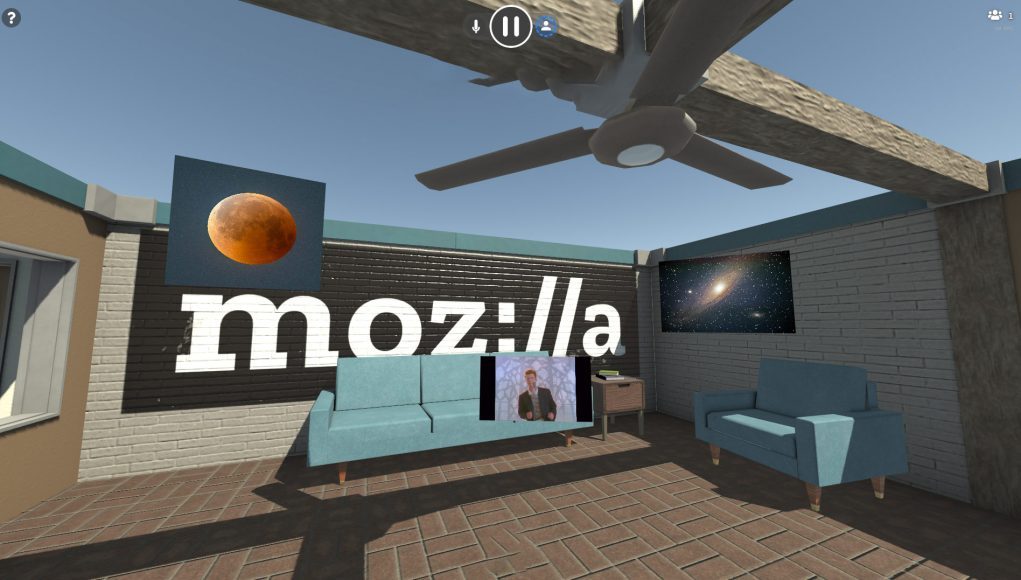Mozilla, the company behind the Firefox browser, shuttered most of its web-focused XR development back in 2020. At the time, the company’s web-based social VR app Hubs was spared from the chopping block. Now, after a new organization-wide restructuring, all development on Hubs is set to be wound down in May.
Launched in 2018, Hubs is an XR chatroom that runs directly in a browser, giving both VR headset users and standard monitor and smartphone users a place to connect. It’s an impressive ‘no-install-required’ WebXR social app that never gained the sort of traction that better-backed apps garnered over the years, such as Rec Room, VRChat, or Meta’s Horizon Worlds.
The team responsible for Hubs recently announced its shutdown in a blog post, stating that its last day under Mozilla will be on May 31st, 2024. This includes shutdown of Hubs‘ demo server, managed subscription, and community resources.
The team aims to provide a multi-month transition period leading up to shutdown of those services, starting with disabling new subscriptions on March 1st, and concluding all work on Hubs by May 31st. A tool to download user data will be released on April 1st, the company says.
While this means Mozilla won’t be continuing active development or maintenance of Hubs codebases and community resources post-shutdown, since Hubs‘ code is open source, anyone can continue independent development. The company emphasizes that its so-called ‘Community Edition’ of Hubs can run on any platform that supports Kubernetes, which includes a majority of cloud services, such as Amazon Web Services (AWS), Microsoft Azure, and Google Cloud Platform.







